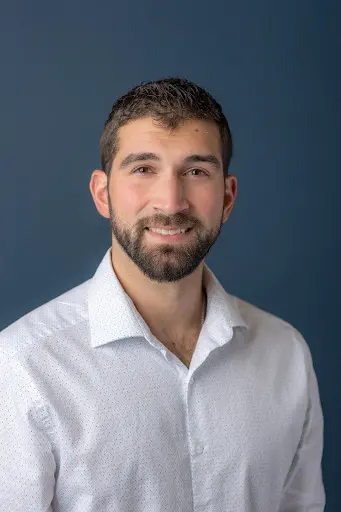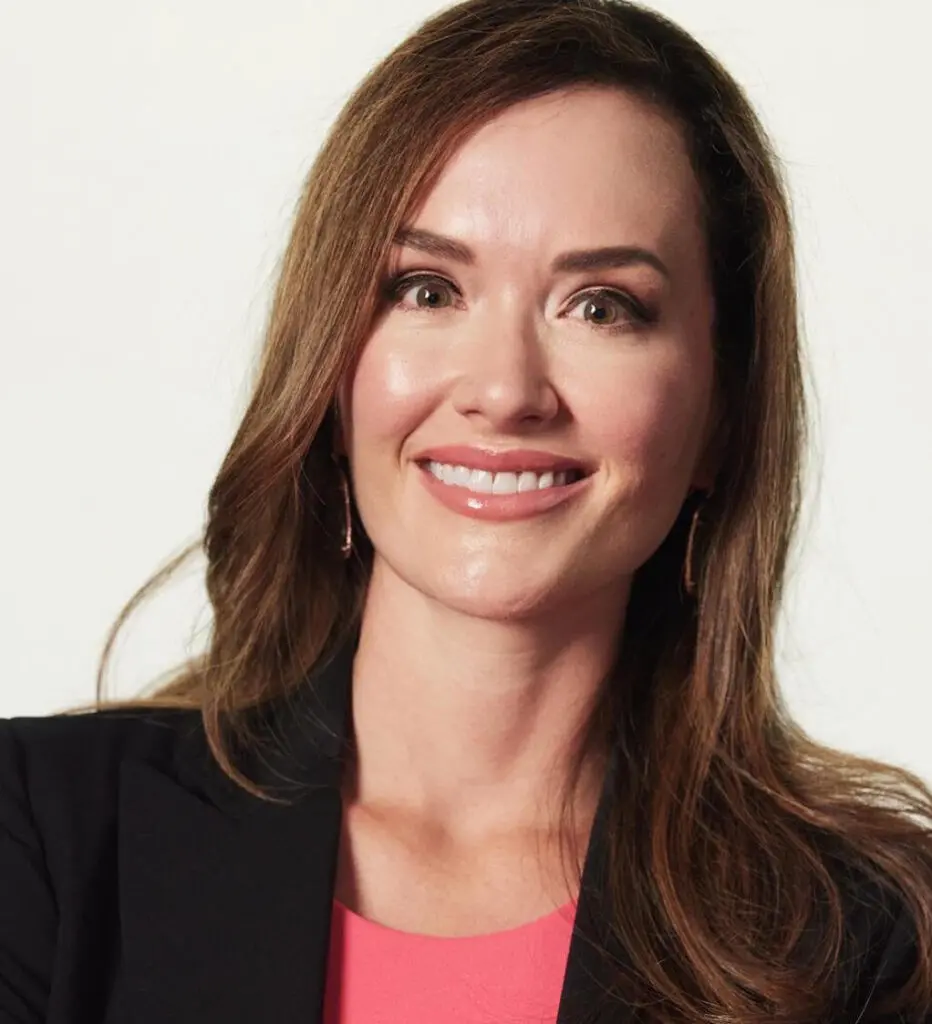Healthy living, including a balanced diet and regular physical activity, connects directly to your mental health and overall well-being. Eating a well-balanced diet can help reduce symptoms of depression, lower your risk of chronic diseases, and strengthen your bones and muscles. Physical activity can ease symptoms of anxiety and depression, help you sleep better, and enhance your thinking, learning, and judgment skills.
However, many Americans don’t meet the mark for a healthy lifestyle. According to the Centers for Disease Control and Prevention (CDC), fewer than 10 percent of U.S. adolescents and adults eat enough fruits and vegetables, and more than 75 percent of U.S. adults do not fully meet the physical activity guidelines to help reduce and prevent chronic diseases.
Healthy living programs may promise to help you lose weight through diet modifications, exercise plans, medications, or supplements. But navigating all the wellness products and services available can be overwhelming, especially trying to find out which products and services are safe and which claims are true. With the help of experts, our Handbook Team researched, tested, and evaluated healthy living programs and products so you can make the most informed choices for your weight loss and healthy living journey. Here’s how we did it.
Why HelpGuide cares about healthy living
We understand that weight loss can be a difficult subject. It’s often fraught with negative emotions directly impacting your healthy living journey. Research shows that feelings of shame, self-criticism, and social comparison can make it difficult for us to manage our weight and regulate our eating habits. Some weight loss programs can even exacerbate these feelings. Our Handbook Team is here to offer guidance and to help you find weight loss platforms that are supportive, positive, and fun to use.
The relationship between weight loss and mental health is often overlooked. For some, weight loss can bring positive experiences of confidence and accomplishment. For others, weight loss can lead to feelings of anxiety, despair, and hopelessness. It is important to consider how your mental health can be affected as you embark on a weight loss journey.
Karin Evans, registered dietitian nutritionist at Top Nutrition Coaching
Considerable mental health benefits are associated with a healthy lifestyle. So we’ve made it our mission to share the best information about the tools available. We’re invested in helping you find a weight loss plan that’s safe, encouraging, and supportive.
If you’re affected by an eating disorder or experience patterns of disordered eating, we suggest talking to a dietitian, therapist, or counselor who specializes in eating disorders.
Considerable mental health benefits are associated with a healthy lifestyle. So we’ve made it our mission to share the best information about the tools available. We’re invested in helping you find a weight loss plan that’s safe, encouraging, and supportive.
If you’re affected by an eating disorder or experience patterns of disordered eating, we suggest talking to a dietitian, therapist, or counselor who specializes in eating disorders.
Who are we?
The Handbook Team is a group of writers, editors, designers, medical reviewers, and fact-checkers who have spent years perfecting the art of testing and reviewing health products and services.
We’ve spent more than 1,000 hours researching and testing healthy living platforms. We’ve interviewed more than 20 registered dieticians, nutritionists, exercise physiologists, and bariatric specialists Bariatric specialists are doctors who work with patients with obesity to help them lose weight and improve their overall health. This can include guidance on diet, exercise, and changing behaviors, as well as surgery, in certain cases. about healthy living. We keep up-to-date with the latest published research on weight loss, chronic disease management, mental wellness, exercise, and longevity. We’ve also surveyed 600 people who’ve participated in weight loss programs, led focus groups, and read hundreds of user reviews.
After considering more than 70 different diets and 20 healthy living platforms, we mystery shopped 15 of them to learn more about the signup process and customer service, and then personally tested six programs for two weeks to find out what they’re really like for users.
What goes into our review process?
Professional insights
We interview nutrition, psychology, exercise science, and bariatric medicine experts to deepen our understanding of every aspect of healthy living. These experts’ insights illuminate the interconnections between physical and mental health and well-being.
We’ve learned how mental health can influence our relationship with food and our diets, body image, and overall physical health.
The two-way relationship between mental health and body weight highlights the importance of a comprehensive approach to well-being. Addressing both mental health and body weight concerns is vital for overall health and quality of life. This approach typically includes psychological therapy, support from health care professionals, and the development of healthy habits that encompass both mental and physical aspects.
Sophie Cress, LMFT
On the other side, we’ve also learned how diets and weight loss programs can influence our mood, motivation, and self-esteem.
“Unfortunately, when the diet fails the person, they themselves feel as if they are to blame, and they try harder. This is a never-ending cycle that many people will experience throughout their lives. It takes us away from truly living and experiencing the world around us,” explains Kelsey Latimer, a licensed psychologist and certified eating disorder specialist. That’s why choosing the right healthy living program for your specific needs is crucial.
Meet some of the experts we’ve consulted with:
Surveys
We conducted surveys to gain deeper insight into how real users felt about healthy living programs.
We wanted to know which features in a healthy living program were most valuable to users. From 600 people who previously participated in healthy living programs, we learned that users want solid guidelines and accountability: meal planning, weight tracking, calorie tracking, meal tracking, and exercise plans were the top five most important features our respondents were looking for in a program.
We also learned that the impact of a healthy living program goes beyond the scale. Although 92 percent of survey respondents lost some weight with their program, respondents also found improvements in the quality of their sleep, stress levels, overall mental health, fitness levels, diet, and relationship with food.
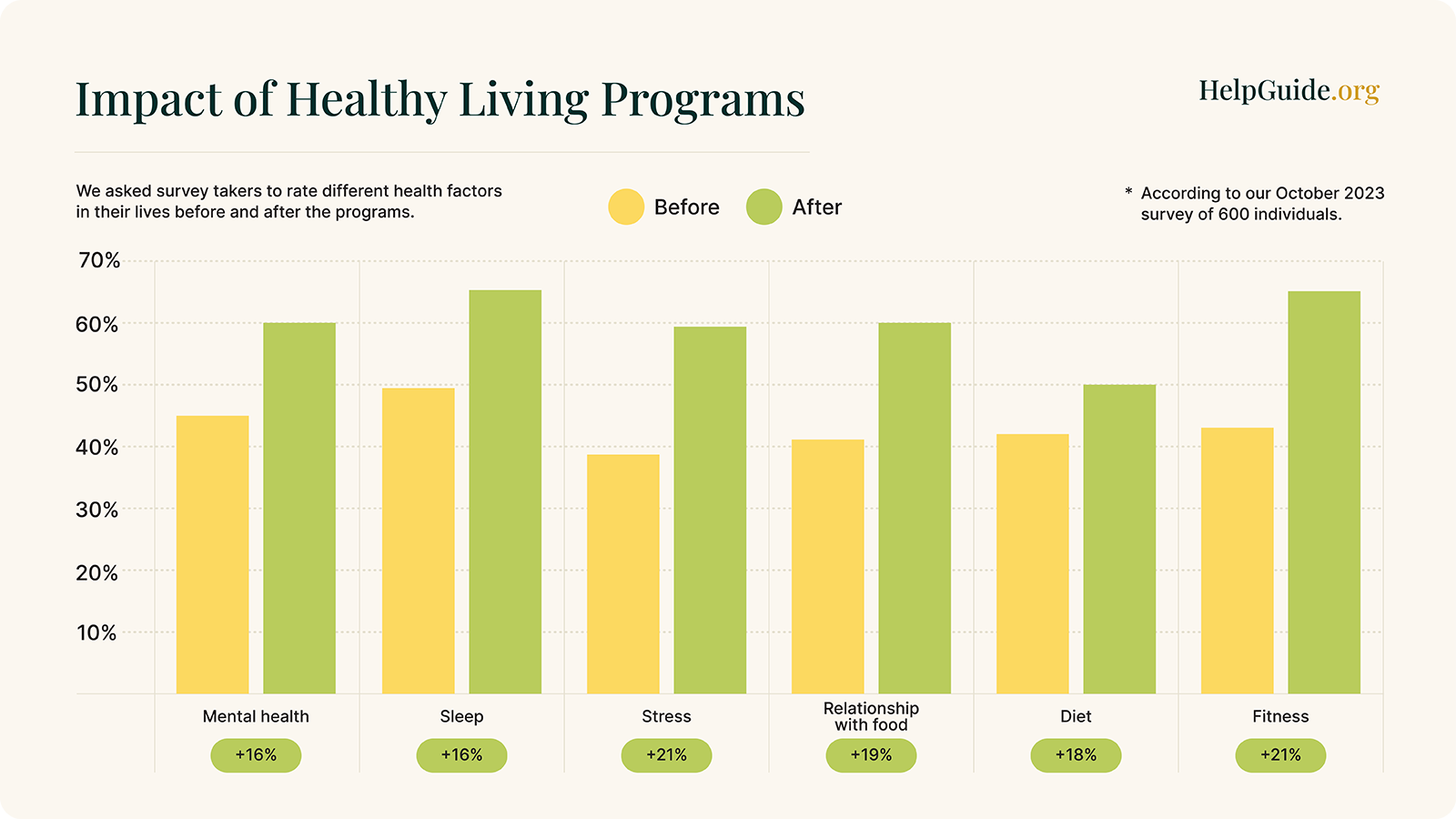
Focus groups
We conducted a focus group with individuals who participated in various healthy living platforms to discuss their experiences before, during, and after the programs. Many participants shared that body image and physical and mental health motivated them to join a healthy living program.
One-third general health, but two-thirds mental health. I always feel better and more confident when I’m in shape versus out of shape.
Focus group participant
Like the survey respondents, our focus group participants were motivated by the data-tracking features of many healthy living programs and apps.
I’m very data-driven in how I approach my professional life, but it spills over into my personal life. I really believe in the mantra, ‘If you can measure it, you can manage it.
Focus group participant
We also learned about the shortcomings of healthy living programs. Weight loss programs are not appropriate for people with eating disorders, and some screen for them when you sign up. Still, one focus group participant noted that some platforms encourage behaviors that might be triggering or detrimental for someone who struggles with disordered eating.
If an individual was inclined, I definitely think they could easily take some of the recommendations too far.
Focus group participant
Mystery shopping
Our Handbook Team researched more than 70 diets and 20 healthy living programs to learn more about them, including customer reviews and the types of regimens, diets, or meal plans they offered. From this, we identified 15 popular healthy living programs to mystery shop. In this step, we went through the sign up process to learn what information the brand asked for, how they set up billing and payment, and how each program communicated its services and outcomes. For programs with a nutrition component, we were interested in whether they actively screened potential customers for eating disorders. We also looked for ways platforms or apps supported the mental health component of encouraging lifestyle and behavioral changes.
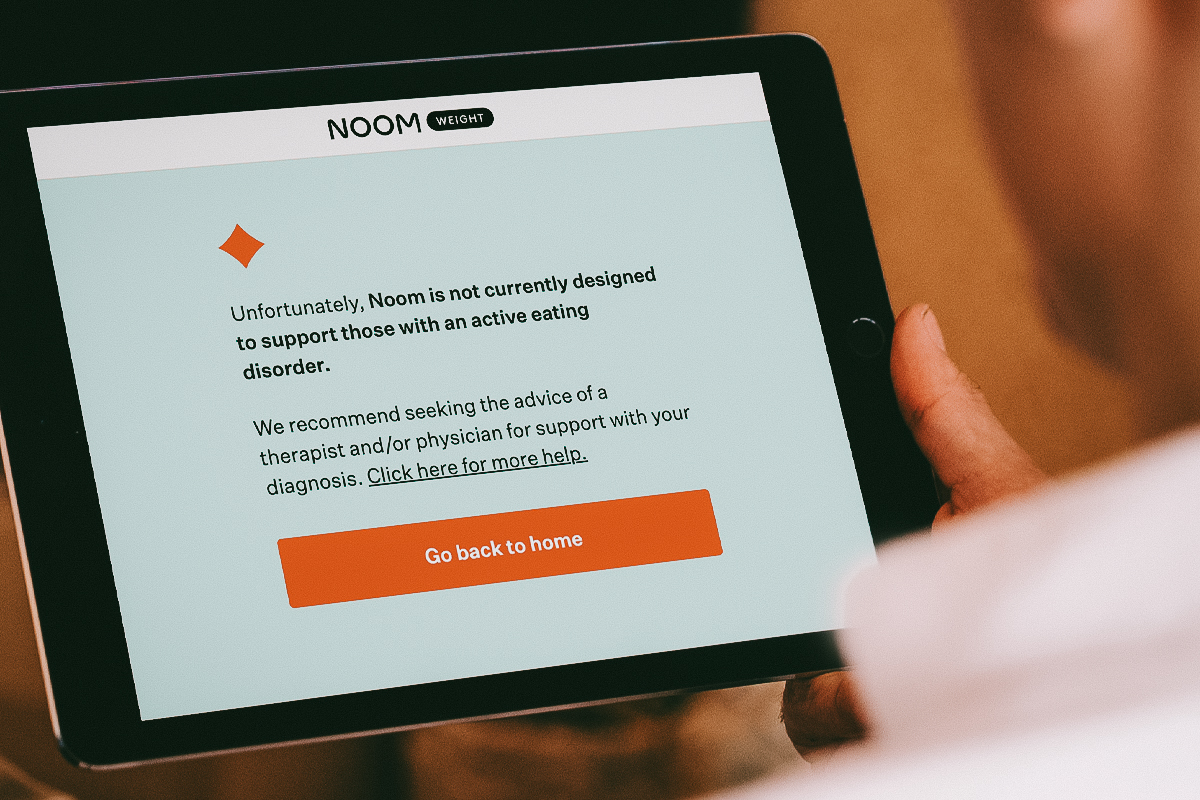
Since many healthy living programs offer subscription-based services, reviewers on third-party review sites like Trustpilot and Better Business Bureau (BBB) often complained of unexpected charges or hard-to-cancel services. We paid close attention to each program’s cost and billing structure and carefully screened our invoices for potential predatory billing practices.
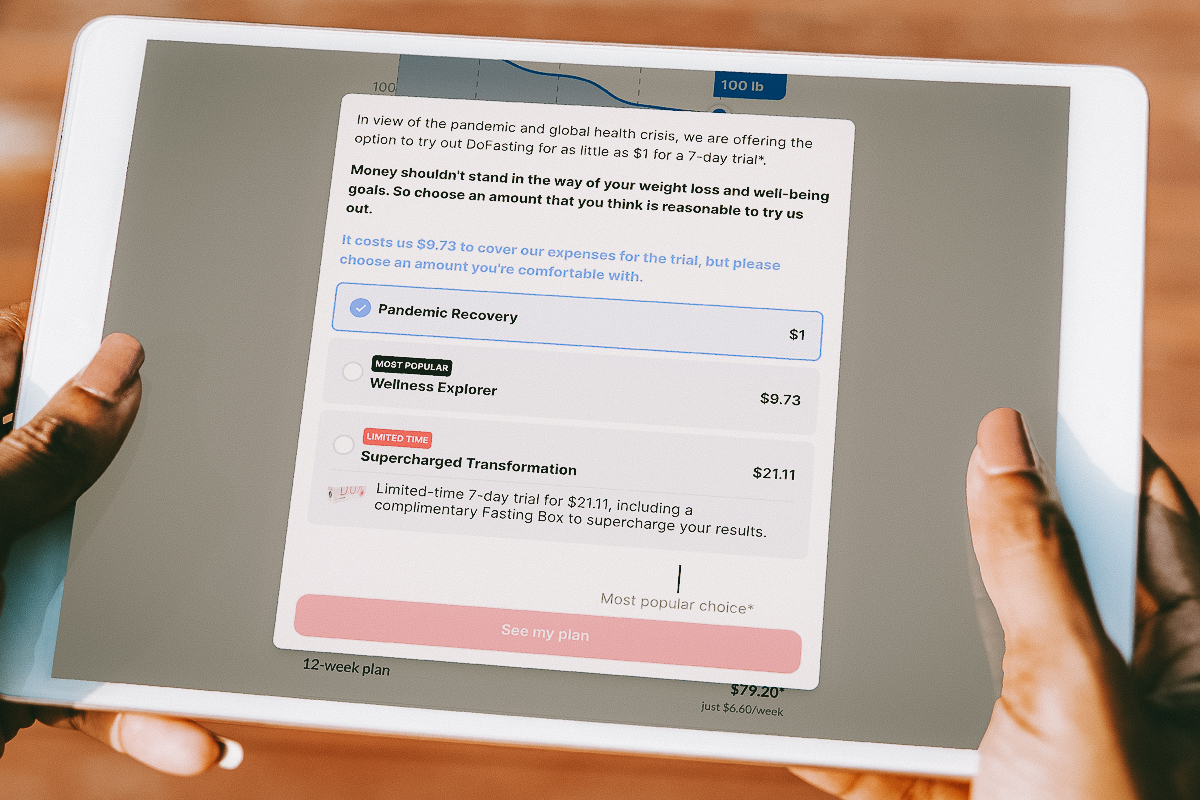
We contacted customer service to learn more about the platforms’ policies and gauge responsiveness and helpfulness. When our tester was charged the full amount after signing up for a trial period on DoFasting, we got first-hand experience interacting with customer service and invoking the refund policy to get our money back.
Real-user testing
Out of the healthy living programs we researched and mystery shopped, we put six to the test with hands-on engagement in the program. We want to review the differences between expectations and experience within these programs to see how well they support users on their healthy living journey.
Our Handbook Team testers participated in the healthy living programs for at least one week, usually two. Testers methodically explored the features of each program, including associated platforms, apps, or products like prepared meals or smart scales. We noted the taste, variety, and cost per serving for programs that offered prepared foods like Diet-to-Go and WW.
Participating in the programs gave our testers insight into who could benefit from the different approaches each offered. For example, our WW and Noom testers reflected the following from their experiences:
One thing I noted in the [WW] meetings were people who joined multiple times. There’s a pattern of people joining and losing weight, falling back into old patterns, and regaining weight and coming back full circle
Lauren D., Handbook Team
I would say Noom is best for people who want an easy, guided experience that only requires a short time commitment. It tells you exactly what to do and when to do it, and you only have to dedicate a minimal amount of time to the program every day.
Mikayla M., Handbook Team
If you are experiencing signs of an eating disorder
First, know that you are not alone. Eating disorders affect people all over the world. In fact, nine percent of people worldwide have an eating disorder. The Association of Anorexia Nervosa and Associated Disorders (ANAD) has the following resources available to people who are experiencing signs and symptoms of an eating disorder:
- Call the Eating Disorders Helpline at 888-375-7767, available Monday through Friday from 9 a.m. to 9 p.m. (unavailable on most major holidays).
- Join a virtual peer support group—there are general support groups and focused groups for LGBTQ+, BIPOC, caregivers, older adults, teens and young adults, siblings, people with larger bodies, men, and binge eating disorders.
- Request a mentor for free using the Recovery Mentorship Program.
- Browse the treatment directory to find a provider that specializes in eating disorders.
These resources can be helpful, but ultimately, you should talk to a health care provider about the symptoms you are experiencing. “I’d suggest contacting a registered dietitian or therapist/counselor with experience in treating disordered eating and eating disorders. This is important because not many registered dietitians and therapists may know how to recognize the red flags and address the issues,” says Karin Evans, registered dietitian nutritionist at Top Nutrition Coaching.
Our testing experience
We asked members of our Handbook Team to test healthy living programs by comparing and contrasting the different features, resources, and approaches each program offered.
Here are a few aspects the testers considered when reviewing healthy living programs:
- Did the program consider safety? The questionnaire should screen for whether the program is appropriate for certain users, like those struggling with eating disorders or who are pregnant or breastfeeding.
- Were the plans affordable? Subscription plans for the programs should have transparent pricing, and users should be able to choose which plan and for how long they want to commit to the program.
- Were the programs realistic? Diet and fitness recommendations should be achievable for someone balancing work, family, and other life commitments. We gauged whether programs had a reasonable time commitment and if they accounted for individualized factors like dietary restrictions, allergies, injuries, or abilities.
- Were the programs sustainable? We sought educational resources that motivated behavioral and lifestyle changes over short-term solutions. Programs should have enough content, tools, and resources to create a healthy long-term lifestyle.
- How did expectations match up with the experience? People shouldn’t waste money on programs that overpromise and underdeliver. Programs should communicate realistic expectations about outcomes to minimize mental-emotional harm from unmet goals.
The five most important things to know about healthy living products and services
Bottom line
Living a healthy lifestyle does not mean embarking on fad diets or a fitness regime that focuses only on rapid weightloss. Healthy living is about supporting your mental and physical health through regular exercise, sleep, stress relief, and a balanced diet. But many programs and platforms on the market promise drastic, unsustainable results under the guise of being healthier. For this reason, the Handbook Team rigorously tests and heavily scrutinizes the healthy living programs we write about. Our goal is to give honest and expert-vetted perspectives so that you can choose the programs that serve your health journey the best.
- Division of nutrition, physical activity, and obesity – About us. (2023, August 18). Centers for Disease Control and Prevention. Link
- How to boost mental health through better nutrition. (2023, April 18). American Society for Nutrition. Link
- Eat healthy. (2023, November 14). MyHealthfinder. Office of Disease Prevention and Health Promotion, U.S. Department of Health and Human Services. Link
- Benefits of healthy eating. (2021, May 16). Centers for Disease Control and Prevention. Link
- Benefits of physical activity. (2023, August 1). Centers for Disease Control and Prevention. Link
- The truth behind weight loss ads. (2022, July). Federal Trade Commission. Link
- Ingels, J.S. & Zizzi, S. (2018). A qualitative analysis of the role of emotions in different patterns of long-term weight loss. Psychology & Health, 33(8), 1014–1027. Link
- Eating disorder statistics. Association of Anorexia and Nervosa and Associated Disorders. Link



